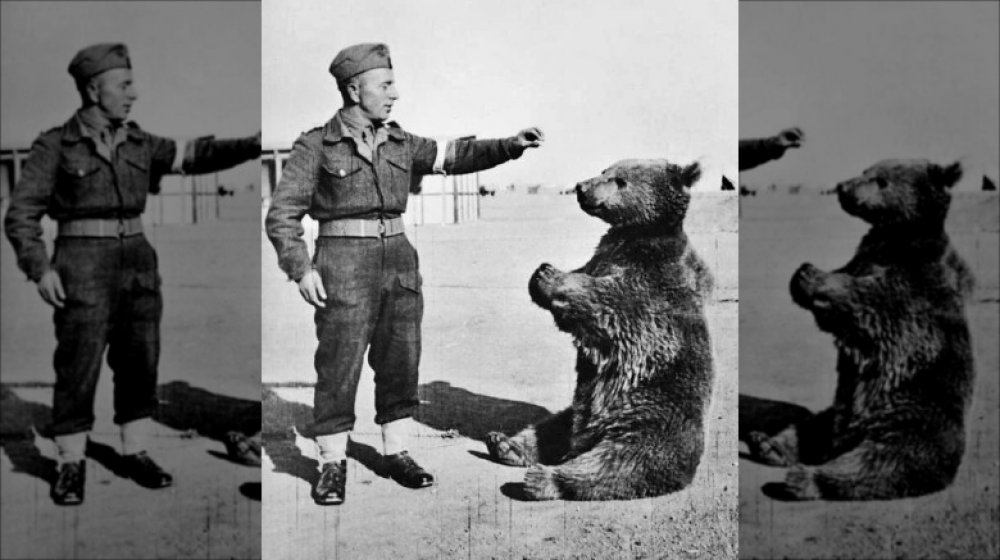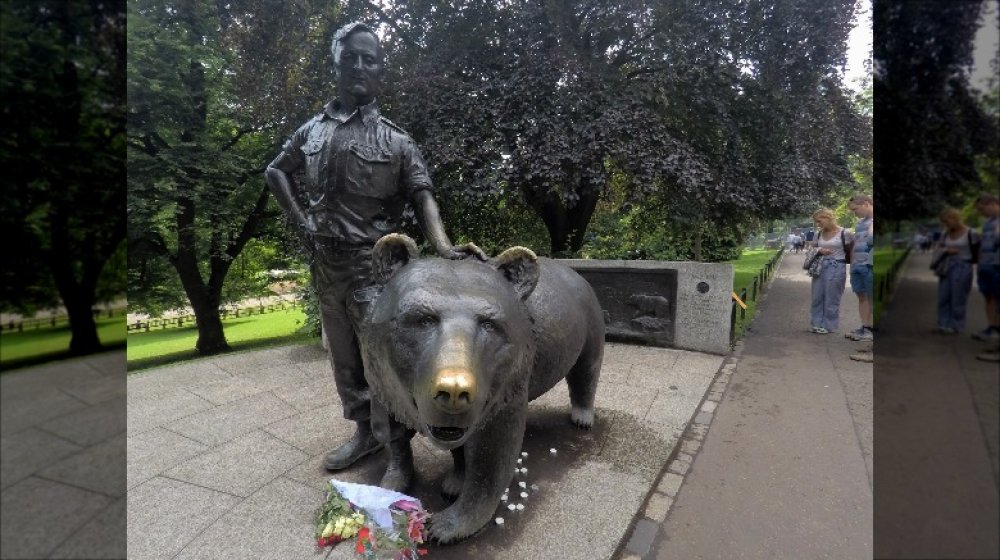The Beer-Drinking Bear That Served In WWII
The history of war is littered with dramatic and fantastical tales about animals doing the unimaginable. In 217 BC, Carthaginian general Hannibal Barca brought 37 elephants, 30,000 soldiers, and 15,000 horses across the Alps in 16 days to pull off an unprecedented ambush on Roman troops. During the Korean War, Marines had a horse named Reckless that bravely — nay, recklessly — transported thousands of pounds of ammo in deadly conditions and got promoted to the rank of staff sergeant.
If U.S. cigarette makers had been thinking, one of America's major wars would have been joined by G.I. Joe Camel, who could have kept troops hydrated with nicotine water and convinced civilians to puff patriotic tobacco to support the troops. Instead, during World War II, Polish soldiers had a cigarette-smoking, beer-chugging brown bear named Wojtek. And despite the smoking, he was a breath of fresh air.
Drunker than the average smokey bear
As Time describes, Polish POWs discovered Wojtek while trekking through Iranian mountains. It was 1942 and the POWs were headed to a Siberian gulag. Serendipity intervened when the Allies struck a deal with Stalin, arranging for the release of the captive Poles so they could serve alongside the Allies. Wojtek was just a cub at the time, and the troops treated him "like a baby," feeding the bear condensed milk from a vodka bottle.
Eventually, Wojtek grew into a 500-to-600-pound behemoth. Polish soldier Dymitr Szawlugo, who helped take care of the bear, recalled that Wojtek "would accept lit cigarettes, take a puff and swallow them." After downing a bottle of beer "he would look through the opening to see where the rest of the beer was." Wojtek was a source of joy and friendly psychological warfare. Troops trained him to hold new recruits upside down "by the boots to make the rookies think they were getting eaten."
Wojtek's most celebrated exploit was toting what appeared to be live ammunition on the front lines at the Battle of Monte Cassino. However, Dymitr Szawlugo's son asserted that the bear carried unused shells and empty ammo crates. Regardless, Wojtek was hailed as a hero, and the troops changed their insignia to a bear carrying an artillery shell. After the war, Wojtek relocated to a Scottish village with other Polish soldiers. There he lived as a beloved community member, attending concerts, dances, and children's parties.

